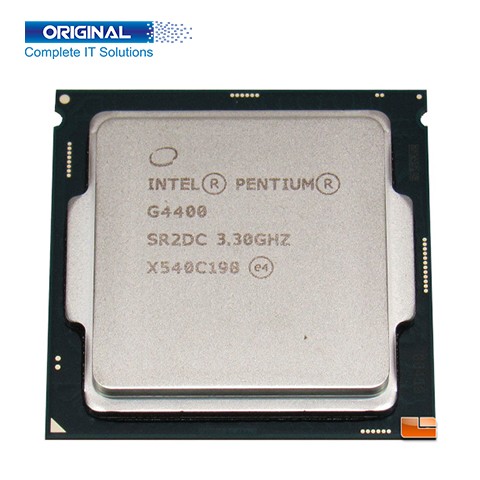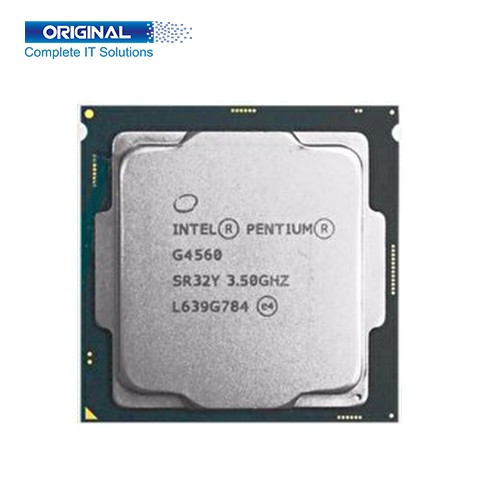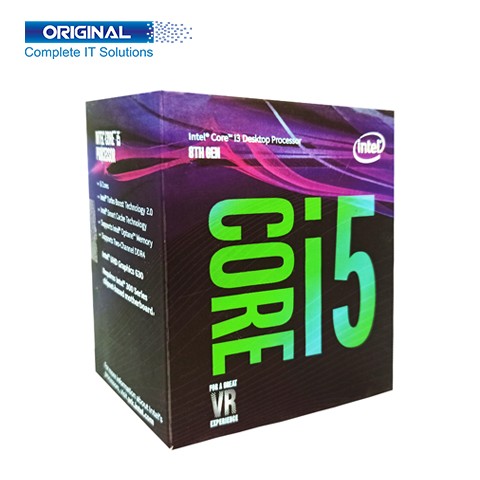ORIGINAL STORE LTD.
- LAPTOP
- DESKTOP PC
- PC COMPONENT
- MONITOR
- UPS
- GAMING
- PRINTER
- OFFICE EQUIPMENT
- NETWORKING
- ACCESSORIES
- PROJECTOR
- PHOTOCOPIER
- SOFTWARE
- SECURITY
- TABLET
- SERVER & STORAGE
- TV
- CAMERA
- GADGET
68 Products are available in this category
Out of Stock
Brand: Intel
Out of Stock
Out of Stock
Brand: Intel
Out of Stock
Out of Stock
Brand: Intel
Out of Stock
Out of Stock
Brand: Intel
Out of Stock
Out of Stock
Brand: Intel
Out of Stock
Out of Stock
Brand: Intel
Out of Stock
Out of Stock
Brand: Intel
Out of Stock
Out of Stock
Brand: Intel
Out of Stock
Showing 1-8 of 68 results
Intel chips are widely recognized as among the best in the industry. They are available in a wide range of styles and prices. You may try deciding which option offers the greatest bang for your buck. Here, you'll find details on the pricing and characteristics of seven of Intel's top CPUs in Bangladesh. The bottom line is that we offer everything you need, whether searching for a cheap or more robust solution. Please read on for more information.
1. Best For Gaming: Intel Core i9-12900K 12th Gen Processor
If you need more processing power than the Core i5-12600K delivers but want to spend less than you would on the Core i9-12900K, Intel's Core i7-12700K is a great alternative. Its great performance may be attributed to the combination of 12 physical cores and 20 threads in the CPU.
Since the clock speed may exceed 5GHz when turbocharged, even the most demanding PC games will run smoothly. The Core i7-12700K is compatible with the best graphics card up to an NVIDIA GeForce RTX 3090. But it may be too ready to take over.
To get the most out of your Core i7 CPU, you'll need a strong all-in-one liquid cooler to handle the heat it generates.
At its highest Turbo Boost frequency, Intel predicts that this CPU will need more power than it can provide. If you like computers or video games, here is the place to be.
Reasons to Buy
• Ready for blazing-fast overclocking
• Core-and-spine hybrid modular design
• Exciting and effective gameplay
• Almost flawless in every way
• Using 12 cores and 20 threads.
Price around : BDT 70,400.00
2. Best For The Professionals: Intel Core i9-12900K 12th Gen Processor
Intel's flagship products in the past two generations, up to the announcement of the Core i9-12900K, have been disappointing. Its 16 cores and 5.2 GHz maximum single-core boost performance is the best. It's far and away the best choice for gaming, content creation, or any other purpose.
The Core i9-12900K can provide up to 30% more performance than the AMD Ryzen 9 5950X. The Core i9-12900K excels at multimedia creation while providing unmatched gaming performance.
It has a high power consumption, but so do most contemporary Intel CPUs. The Core i9-12900K is a remarkable example of what Alder Lake's hybrid architecture can do for home computers, thanks to its high core count and sufficient bandwidth for multitasking.
Reasons to Buy
• Able to work with DDR5 memory
• Compared to the Ryzen 9 5950X, it performs far better than its rival.
• PCI Express 5.0 may be used with certain motherboards.
• Significantly cheaper than the Ryzen 9 5950X
• Overclocking with plenty of headroom
Price around: BDT 49,900
3. Best For Office Use: Intel Core i7-11700k 11th Gen Rocket Lake Processor
The Core i7-11700K fits well into Intel's Rocket Lake product stack and is priced between two of AMD's best-selling Ryzen 5000 CPUs. However, the 11700K faces stiff competition from the AMD processors that have led our list of Best CPUs, even though its pricing makes it a tempting chip for consumers wanting the maximum performance from a regular Intel platform without paying the flagship price.
While the Core i7-11700 official K's maximum speed for that setup is DDR4-2933, running it at DDR4-3200 in lower-latency Gear 1 mode is considered overclocking.
In return for improved CPU performance, Intel normally does not put severe limitations on RAM overclocking. However, doing so would technically void your warranty.
Reasons To Buy
• Upgraded Graphics Processing Unit Performance
• Overclockable
• PCI Express 4.0 lane count on-chip
• Playable and usable software and games
Price around: BDT 37,400
4. Best For Schools: Intel Core i7-11700 11th Gen Processor
The Core i7-11700 is Intel's top-of-the-line desktop CPU and uses the company's new Rocket Lake microarchitecture. The processor's 8 cores and 16 threads may reach 2.5 to 4.9 GHz speeds. In normal operation, power consumption is restricted to 65W (PL1, steady load), but 224W (PL2) may be used for short durations.
CPU cores from Sunny Cove (also present in Ice Lake mobile CPUs) feature larger caches and up to 19% greater IPC. The new Intel UHD Graphics 750 is included into the faster Rocket Lake-S CPUs; it is based on the existing Intel Xe architecture (e.g., mobile Tiger Lake).
Also, WiFi 6E and Thunderbolt 4 capabilities have been (largely) included into the chip. Faster AI processing is possible because to the platform's PCIe 4.0 and Intel DL Boost capabilities.
The CPU is manufactured using the archaic 14nm technology, like its Comet Lake predecessors.
Reasons to Buy
• It never got hot like Intel's Core i5.
• There are included images for your viewing pleasure.
• Cost-effectiveness and relative market standing
• Important 4K performance criteria
Price: BDT 35900
5. Best For The Students: Intel Core i5-12600K 12th Gen Processor
A Core i5 processor is the best option for gaming demands. It's cheaper than a Core i7 or i9, but it still has all the capabilities that make those CPUs great for gaming. And the 12600K, the first Core i5 of the Alder Lake generation, doesn't break the mold, although that may be underselling its potential.
Said, the Core i5 12600K is in a league of its own, offering the performance of the greatest CPU from the previous generation in a device that costs roughly half as much.
In other words, Intel was able to shrink its powerful Core i9 CPU down to the size of its more cheap Core i5 in under a year.
The Core i5 12600K is a more power-efficient design than the Core i9 12900K while being astonishingly good since it doesn't push Alder Lake to its extreme limits on a single chip.
Reasons to Buy
• The Alder Lake microprocessor has been upgraded.
• It holds its own against Intel's latest Core i9 11900K chips
• the best CPU for video games in 2021
• The Intel Core i5 12600K is a powerful option for a six-core, four-thread CPU.
Price around: BDT 34100
6. Best For The New Gamers: Intel 10 Gen Core i7-10700 Processor
While both the Core i7-10700 and Core i9-10900K are overclocked, there is no longer a noticeable performance gap when playing games. The standard single-threaded performance is also pretty good.
Because of these upcoming chips, the cost of present CPUs has fallen. The Ryzen 7 3700X is a viable alternative at a lower price point because of its worse gaming performance and little benefit in non-gaming creative workloads.
While the Core i7-10700 offers unequaled gaming performance, the Core i5-1600K may be a better value for those looking to build a gaming PC on a tighter budget.
Therefore, the Core i7-10700 is still a good choice for high-end gaming PCs, but the Core i9-10900K is less appealing to overclockers and people who aren't concerned with frame rate but rather other factors.
Reasons to Buy
• Extremely high-quality performance in-game
• More affordable overclocking possibilities
• The Ultimate 3.0 Turbo Boost is required for tolerable cold temperatures.
Price around: BDT 30,400
7. Best For Overall Performance: Intel 10th Gen Core i5-10400 Processor
Despite not being branded as a Core i3, the 10400 is still one of Intel's most cost-effective CPUs. It's rather powerful for the cost, with a base speed of 2.9 GHz and a boost clock of 4.3 GHz. Value-wise, it's hard to beat, especially compared to the 10600K.
The most notable difference between the 10400 and other models is that it requires a dedicated "F" type graphics card to function.
The 10400 is reasonably priced and performs well. The 10400F is a fine Intel processor for web browsing, light photo processing, and office applications, but it isn't up to the challenge of demanding CPU-intensive activities.
The 10400F is an even better alternative if you're a gamer. The 10400F's multiple cores and high peak clock speed make it competitive, with CPUs costing three times as much. It can provide gaming performance on par with Intel's Core i7 and Core i9 chips when coupled with a high-end graphics card.
Reasons To Buy
• Ideal for the office and juggling several tasks.
• The most affordable rate
• Created for those who don't have high hopes
• One promising option is the 11400F, a next-gen option.
Price around: BDT 18,400
When searching for a new Intel CPU, you may have run across some unfamiliar terms. This article will compare and contrast Intel's Core i3, Core i5, and Core i7 CPUs and discuss the implications of the company's recent introduction of Core i9 processors.
• Among Intel's Core CPUs, the Core i3 is the cheapest choice. They may be found in low-end desktops and laptops and are intended for simple computing activities.
• Core i5 CPUs are a solid option for mid-range laptops and desktops due to their improved performance over Core i3 processors.
• Core i7 CPUs, the most powerful of the three, is standard in high-end notebooks and desktops because of their exceptional performance.
• The newest addition to Intel's range, Core i9 CPUs, surpasses the performance of Core i7 processors. They are standard in high-end gaming laptops and desktop PCs.
The optimal number of gaming CPU cores relies on several factors. For the best gaming performance, a processor with at least four cores is recommended. A two-core CPU should be plenty for smooth gaming if you aren't aiming to break any records.
The answer depends on your individual goals and requirements for game time. A processor with four or more processing threads is recommended for optimal performance. A two-core CPU should be enough if all you want to do is play games smoothly.
You will often hear four statements that are essential knowledge while choosing a processor:
The number of processing cores in a typical laptop or desktop microprocessor is two or four. Common examples are dual-core and quad-core designs. Recently released models may have up to eight processing cores. A computer with more processing cores is better able to handle multiple tasks at once.
The term "multithreading" describes a processor's capacity to handle many tasks simultaneously. Increasing the number of threads helps the system handle more requests at once, increasing performance. The acronym "HT" stands for Intel's Hyper-Threading technology.
At some point, clarity begins to disappear. This blog attempts to simplify the complex Intel CPU naming structure. You'll need to know the constituent parts of Intel CPU names to distinguish between them. Every Intel central processing unit has a name comprising various components, such as the manufacturer, model year, generation, SKU, and product line.
The other performance is only accessible via manual clock speed increases. With little effort, the clock rates of the CPU's cores and the total performance of an overclockable CPU may be enhanced.
Next to the manufacturer and descriptor is a generation indicator, such as 9 or 10, and then an SKU number sequence. The manufacturing date of a chip provides information about its production date.
The clock frequency is very high, measured in gigahertz (GHz). Finds out how many computations can be run via a computer's CPU in a given amount of time. Computers are faster when they can do more processes simultaneously. Clock speed measures how rapidly a computer can do basic operations like opening programs, saving files, and sending images to a printer.
Brand modifiers such as "i3," "i5", "i7," and "i9" follow the term "Core" in Intel's Core processor models. The bigger the modifier's number, the more powerful it is and the more options it provides. Other processor brands, such as Xeon, Pentium, and Celeron, don't include these descriptors in their names.
Before you go out and buy a processor, there are several things to think about. Here are five things to consider before buying an Intel central processing unit.
You should consider how much you can afford to invest in a CPU. Knowing your budget is essential when purchasing an Intel CPU since their price may vary from roughly BDT 3000 to over BDT 75000.
How quickly a CPU can do one cycle of operations is referred to as its clock speed and is expressed in gigahertz (GHz). A speedier CPU is usually associated with a greater clock speed.
The processor's number of cores and threads indicates the total number of CPUs it may use simultaneously. The more cores and threads a CPU has, the quicker it will be.
The CPU and motherboard are connected through the socket type. Before purchasing, check whether the CPU socket type is the same as your motherboard.
Make sure the CPU you pick has the necessary support for a dedicated graphics card if you want to use one. Some CPUs feature built-in graphics, while others do not. You should check the manual to know what kind of graphics support your motherboard provides.
One must consider the CPU's speed, the number of cores required to run the software, and the CPU's compatibility with the rest of the computer before making a purchase.
Intel Core i7 CPUs, in comparison to Core i5 processors, provide more power and performance. Up to six cores and twelve threads are available in the latest i7 CPUs, making them well-suited for heavy multitasking.
Intel's newest flagship processor, the Core i9-12900K, is an unlocked version of the Core i9-12900K and promises "the world's fastest desktop CPU" and "the ultimate gaming experience," among other things.
The abridged version is: yes. It is a platform for playing games. It does its job well. There may be better choices than the latest Core i3 CPUs (i5 and Ryzen 5 are favored, but they may be sufficient for your gaming system.
To play the games you want, that amount must be sufficient. Modern AAA games may still burden a system's RAM, even when a dedicated graphics card is used, so consider upgrading if you still need to get at least 8GB.
8 GB of RAM is enough for common computer operations like web browsing and word processing, 16 GB is recommended for spreadsheets and other office apps, and 32 GB is necessary for gaming and multimedia production. Keep this in mind as a rough guideline for how much RAM your computer needs for the tasks you want to run.
Intel CPUs are dependable and provide excellent performance. It is common knowledge that Intel CPUs are the most powerful and energy-efficient. They find usage in anything from portable computers to back-end servers. Intel CPUs often cost more than their AMD equivalents, but they are faster and use less power. While Intel CPUs cost more, they are generally well worth the investment for most consumers.







